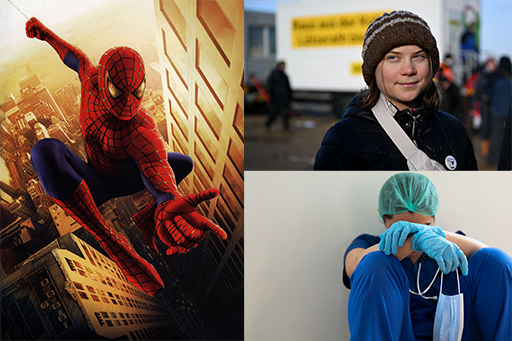2 Thinking about heroes
As you learned in Section 1, the mythical stories of the Trojan War centre around characters who are in many ways larger than life. The main characters who appear in Homeric poetry – the Greek warrior Achilles in the Iliad, and Odysseus in the Odyssey, along with other key figures on both the Greek and Trojan sides – are usually referred to as ‘heroes’.
Before you examine more closely the hero(es) of the Odyssey, however, think about what the term ‘hero’ means to you.
Activity 2
- What does the word ‘hero’ mean to you? Jot down three or four words or phrases which come to mind.
- Write down an example of a person whom you consider to be a hero based on the answer you gave for question 1.
Note that there is no single right answer to either of these questions. Since you were asked for your own ideas about heroes, no doubt your responses depended very much on your own experiences and interests.
Discussion
- Perhaps when you were asked what the word hero means to you, you thought about films you have seen or books you have read to help you to formulate your answer, or maybe you considered the way in which people are sometimes described as heroes in news stories. You probably had your own particular ideas about what kinds of actions and personal characteristics make someone a hero, but whatever you wrote down for the first question, your answer probably touched on the idea that heroes are special in some way. You’ll come back to this idea shortly.
- In answer to this question you may have thought of a fictional character or a real person – someone you know or an individual who is in the public eye – or perhaps you selected a particular type of person, for example human rights activists, military personnel, or people who work in the caring professions.

